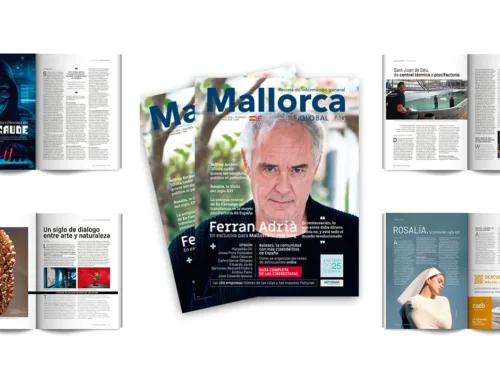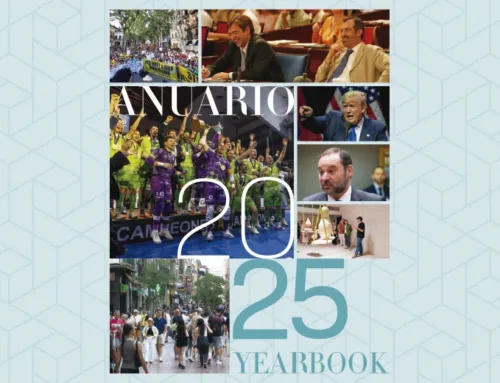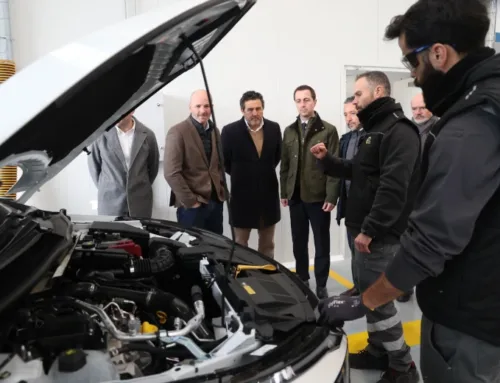Professor of Economics at the UIB and director of the Impulsa Balears Foundation, Antoni Riera refers to three key levers to improve the competitiveness of the Balearic Islands at this time: efficiency, innovation and sustainability.
Text: Virginia Servera. Palma
Photos: A. Costa / Servei comunicació UIB
In one of your most recent articles, you affirms that we are facing “a systemic crisis that affects the entire regional system”. Tell us what we are facing.
The truth is that it is a clearly different crisis. The last crisis was fundamentally a demand crisis, but in this case we have a very important supply component. In addition, there is the risk that it could have a third derivative in financial terms. Therefore, we can say that we are facing a very exceptional situation, which never appears in economics books and for which it is difficult to
find a recipe.
Do you think we will recover the 2019 tourism activity? When?
Verbs like “recover” or “rebuild” seem to me not very ambitious and very reactive. Instead of going back to 2019, what we have to do is move forward and accelerate what we want to be in 2030. Without a doubt, the Balearic Islands will continue to live off tourism but it will be a higher value tourism, much more sophisticated; we will stop providing services and start selling experiences.
The coronavirus has exposed the weaknesses of the Balearic economy. Is it an opportunity to find alternatives to monoculture tourism?
COVID has caused something that other crises have not been able to provoke: breaking with the flywheel that tourism in the Balearic Islands represents. In the other crises, tourism has always been the sector that has brought the archipelago out of the crisis before the rest of the regions, but not in this case. And that leads us to face a reformulation exercise. It is not about running away from tourism but about sophistication of tourism. That is, to move from volume to value.

“I would never have imagined falls in GDP of more than 20%”
Are we ready to face this challenge?
I have no doubt. At this moment, what we need is to add to the adaptability that the Balearic tourism ecosystem has, the capacity to anticipate what the next tourism will be like. And that is where very disruptive factors come into play, such as all issues related to digitalisation, circularity, sustainability, robotization…
When will we see the GDP recovery?
As an economist, I would never have imagined GDP falls of more than 20% like those that will have occurred in the Balearic Islands this year. It will depend on two things: the vaccine and the ability we have to live with the virus. The vaccine will give a relevant but not full solution. Therefore, the adaptation of both the production and consumption processes to situations such as the one we have experienced will determine the time period for recovery. I hope that in 2022 we can start down the road.
Many small and medium-sized businesses are closing…
As quickly as the uncertainty that weighs on business disappears, new opportunities will appear and there will be a regeneration of that business fabric. I am not so concerned with quantitative substitution, which I am convinced that it will happen, but with qualitative substitution. May the good, the differential and the unique be lost in this process.

Unlike 2008 crisis, the government strategy to overcome the crisis seems to involve greater public investment.
Investment is welcome from a growth counter perspective -if you invest today, you get growth tomorrow- but we would have to ensure that that investment had a double payoff: growth and productivity gains. COVID is very demanding. It is not enough to speed up the growth counter, it is necessary to improve the efficiency of the production processes. The Balearic Islands need to gain competitiveness.
What made us think that we had the best healthcare system in the world?
Our measurement system, not only in the health field but also in others, was based and is based on aspects of a quantitative nature. We understood that we had a good health system because the ratio of doctors, operating rooms or beds was higher. COVID has shown that as important as the physical and human capital that you treasure is also the man agement capacity and the flexibility of these processes. And there, it is true that we have found some weakness.
During crises, the middle class tends to shrink and the highest incomes to grow. Is this pattern repeating itself? Are we going towards a more unequal society?
Crises always generate, at least in the most primary stages, an increase in inequality. The most vulnerable groups tend to bear the impact of the crises more and, logically, the middle class becomes also poorer.
How will this thinning of the middle class affect us?
If we remember the scene of the Great Depression, after the year 29, there was a reorganization of the capitalist system itself and the key was in the middle class consolidation. The definitive answer to COVID lies precisely in this too, in a reformulation of the capitalist system and relocation of the middle class to the place where it belongs. Otherwise, we would be subject to many tensions of a social nature that would end up also impacting the economy’s ability to generate business.







Leave A Comment